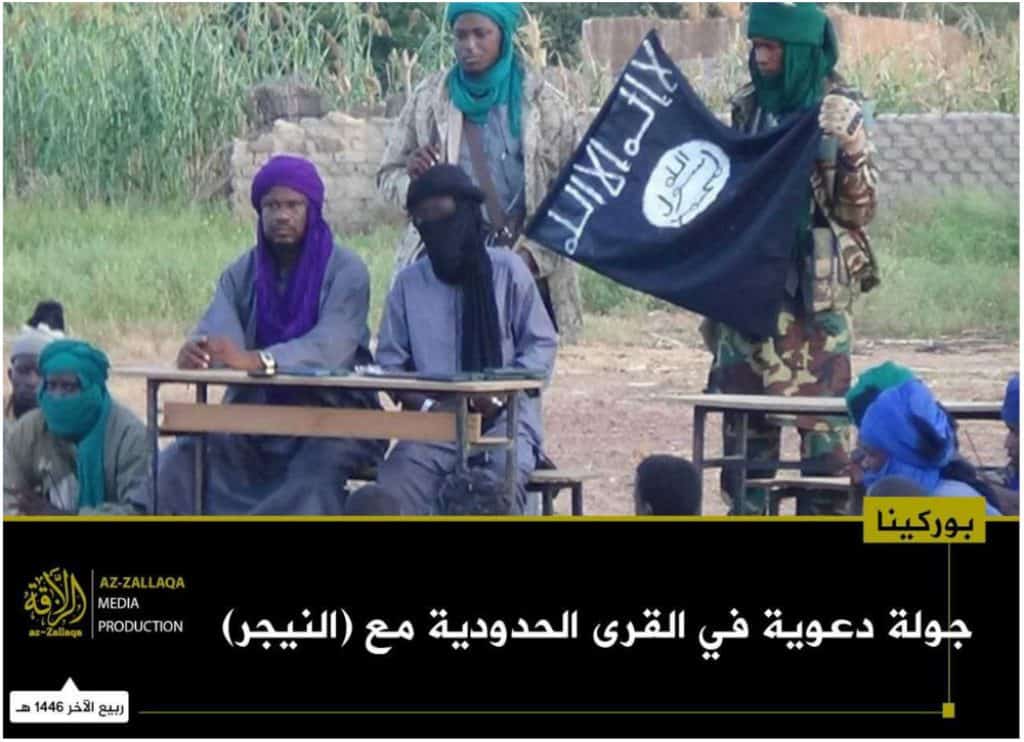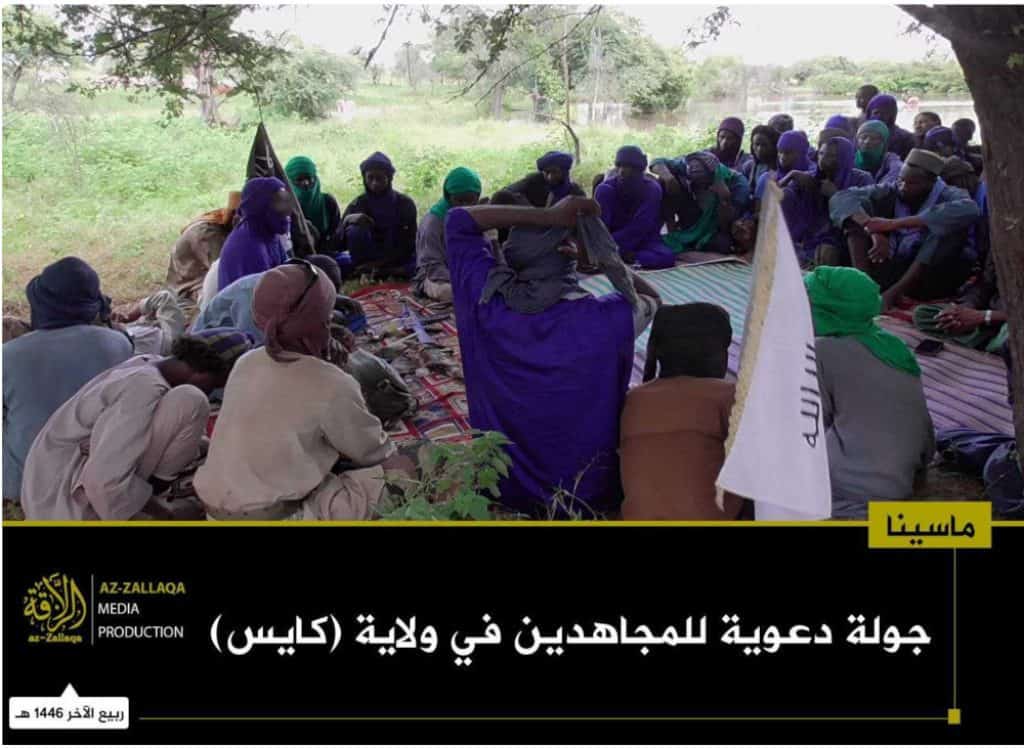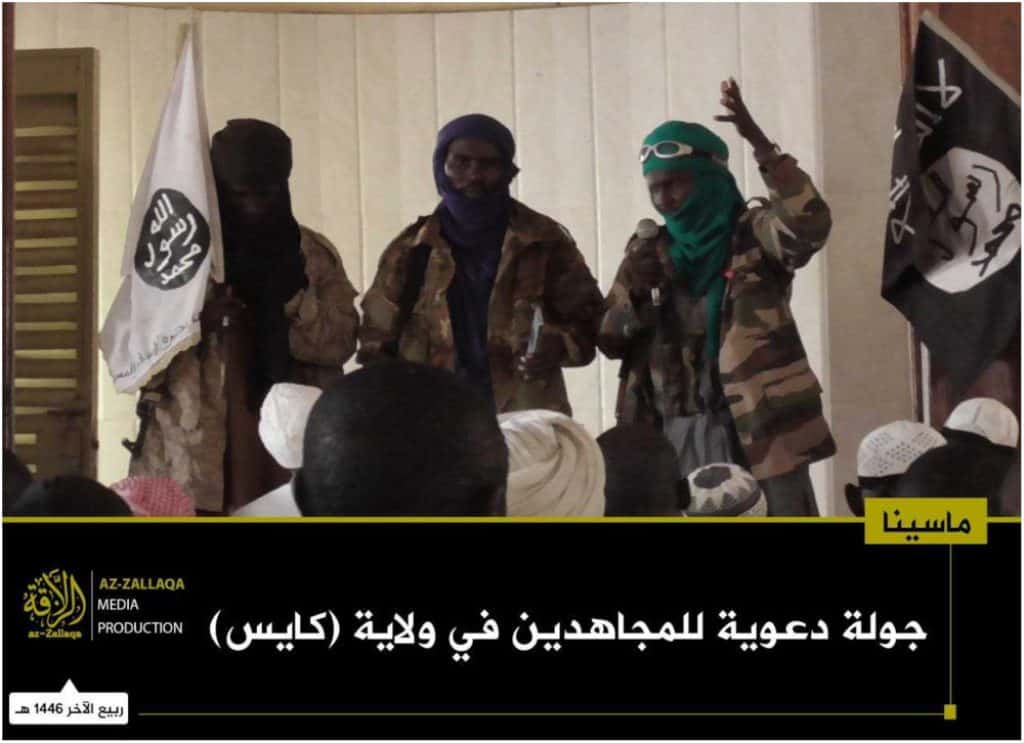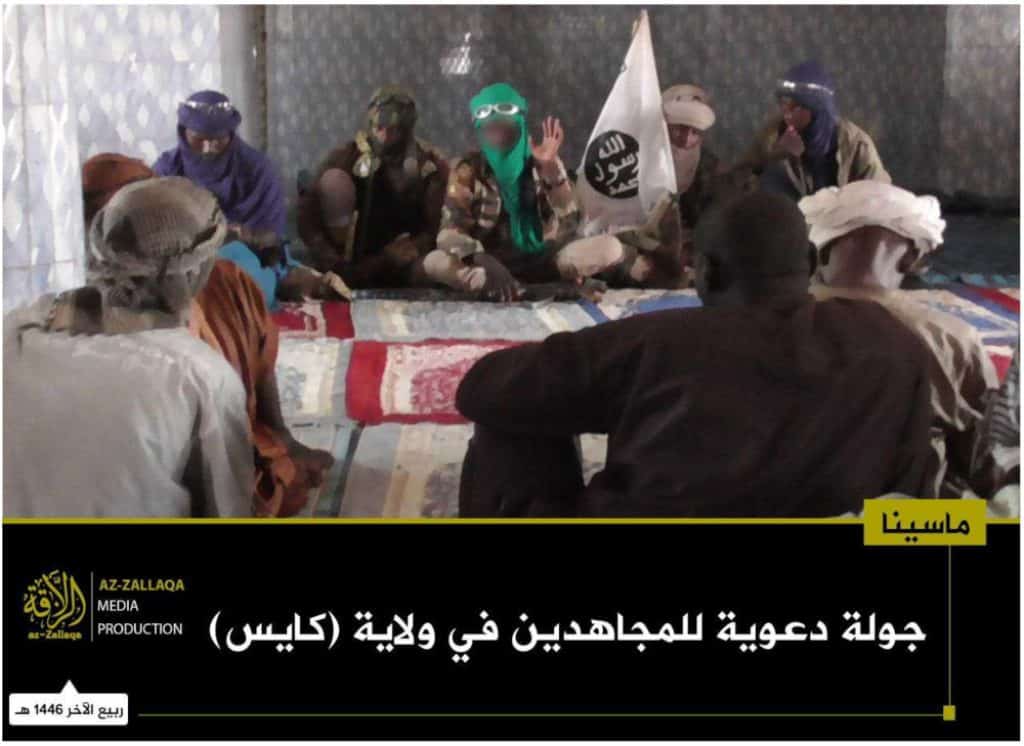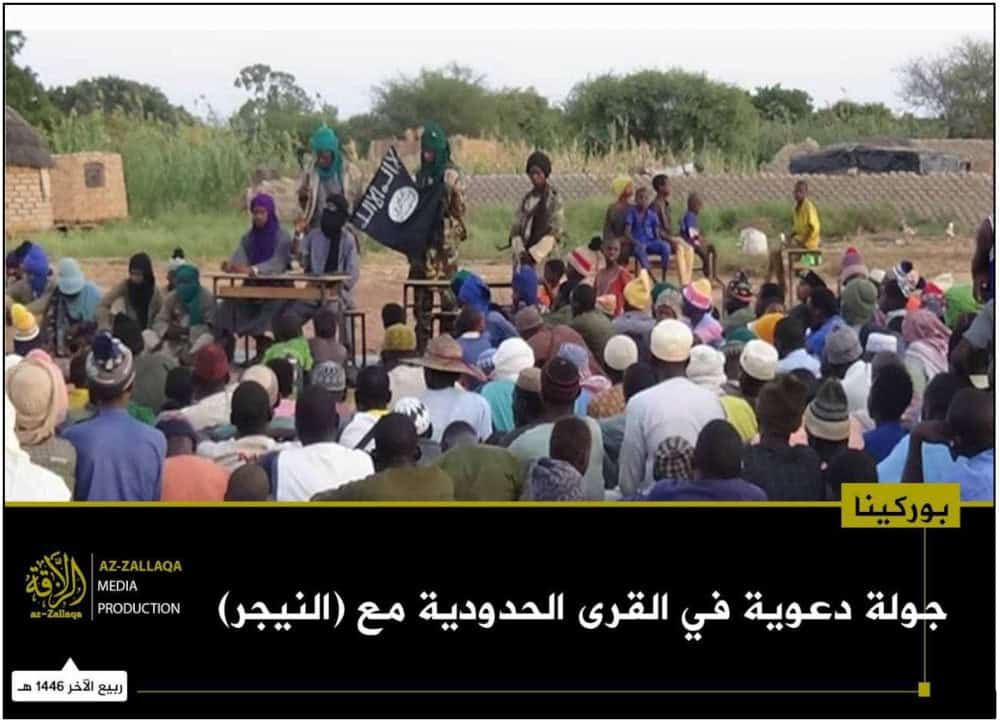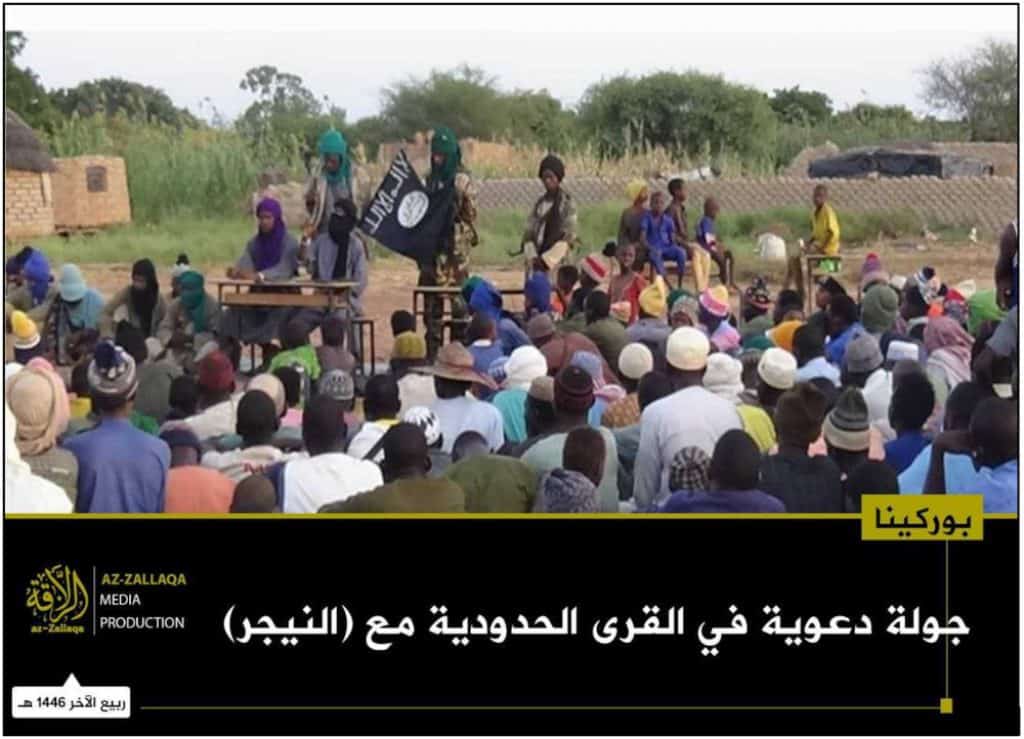
Over this month, the Group for Support of Islam and Muslims (JNIM), al Qaeda’s branch for West Africa, has publicized its da’wah (proselytizing) activities in local communities in Mali and Burkina Faso.
Photos released by the group document its men preaching and delivering religious lectures to locals in the southern Mali region of Kayes and Burkina Faso along the border with Niger. Dozens of locals in each area can be seen attending the events.
The da’wah activities in Mali’s Kayes region reportedly took place in the Yelimane area, which sits not far from Mauritania and Senegal. JNIM has steadily pushed further south inside Mali over the last couple of years, slowly encircling the capital of Bamako.
It is unclear where the events occurred inside Burkina Faso, but JNIM maintains significantly more influence and control there than inside Mali. For instance, at least 40% of Burkina Faso is believed to be under the influence of JNIM.
Some of these community gatherings were attended by key leaders of JNIM, such as Mahamoud Barry, as first noted by journalist Wassim Nasr. Barry was freed from Malian detention in a prisoner swap with JNIM in 2020. Barry, also known as Sheikh Abu Yahya, was arrested in 2016 for his role as a senior commander in JNIM’s Katibat Macina—a position he still holds today.
An Arabic term that roughly translates to “proselytizing,” da’wah serves an important purpose for jihadis. It allows them to propagate their version of Islam to build local inroads and serves as a way to build goodwill and support in communities under jihadi control.
Da’wah activities can range from religious lectures to community-based events or festivals geared around Islamic principles. The latter is a popular device used by Shabaab, Al Qaeda’s branch in East Africa, as part of its da’wah activities in Somalia.
More importantly, such activities are an integral part of the jihadi state-building project, and a group’s release of propaganda helps provide evidence of a form of influence and/or governance over a specified area. The Islamic State (IS), Al Qaeda, and the groups’ respective affiliates and branches all stress the importance of da’wah for this exact reason.
For its part, the Islamic State has also showcased its da’wah activities across the African continent this year, with such events taking place in Mali, Mozambique, and Nigeria. More recently, IS also highlighted a more bastardized version of da’wah in the Democratic Republic of the Congo (DRC), where it conducts forced conversions of abducted Congolese civilians.
To jihadis, da’wah is the proverbial ‘carrot’ to their usual ‘stick’ approach. While violent expansion is often the primary way jihadis can and do expand their territorial conquests, it is not the only method.
Indeed, da’wah acts as a form of soft power that jihadis can use to help win over new congregants, members, and supporters and obtain a public relations victory in the eyes of locals under their control or influence. The publication of such events can also signify the extent to which jihadis feel comfortable operating in the open.
Given the group’s most recent releases, JNIM now joins the Islamic State and its Al Qaeda brothers in Somalia in feeling comfortable enough to engage in open da’wah activities. The group is sending a strong signal to the local Sahelian juntas about its growing strength and attempts to expand its influence.
Other select photos of JNIM’s da’wah activities:
